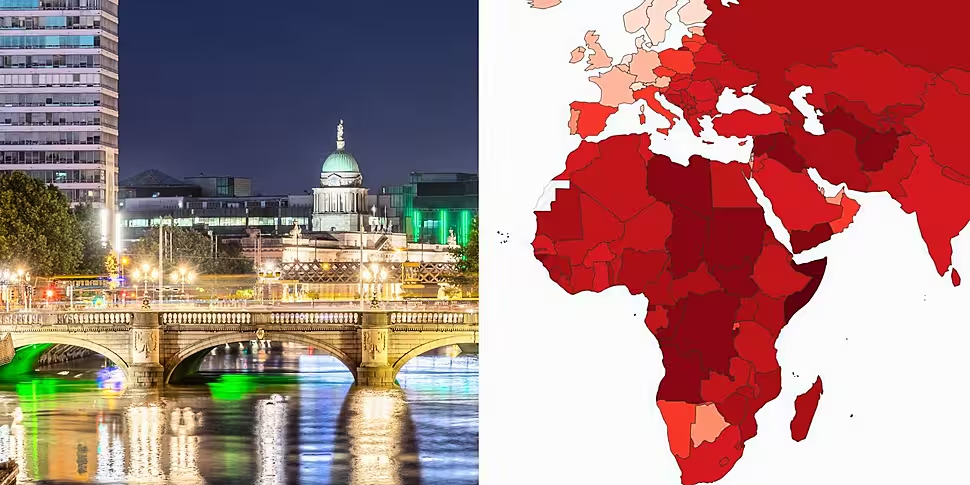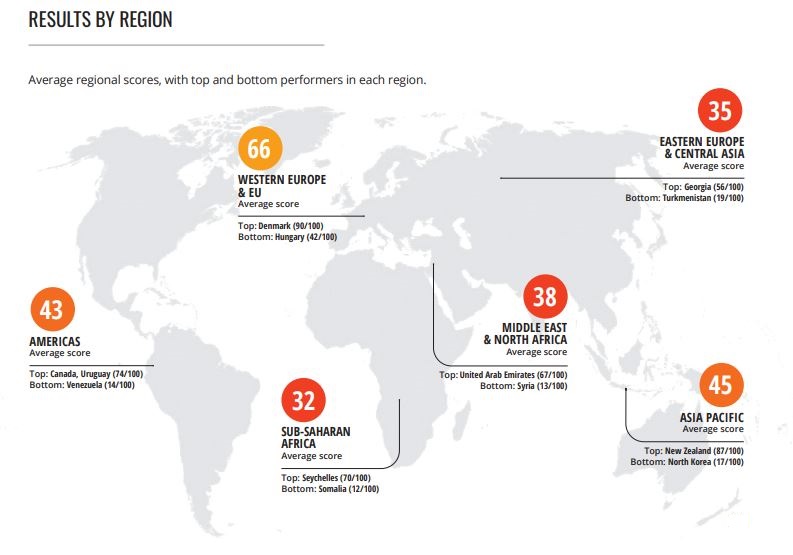Ireland needs to reform the way in which our public officials disclose information.
That's according to the head of Transparency International Ireland, who was speaking as the country has been perceived as less affected by corruption than the UK for first time in 25 years.
The latest Corruption Perceptions Index (CPI) sees Ireland's score improve significantly since last year, when it received 74 points out of 100.
The new index gives Ireland 77 points out of 100 - ranking it in 10th place out of 180 countries.
This means Ireland is now perceived to be less affected by corruption than the UK, Australia, and Canada for the first time since 1997.
John Devitt, Chief Executive of TI Ireland, told Newstalk Breakfast this is good for the country.
"This is the first year that we've noticed a significant jump, or improvement, in our performance year-on-year," he said.
"It's the first time we've finished above the UK in 25 years, and the first time ever that we've finished ahead of Canada and Australia.
"I think that's in large part because of the absence of a major controversy that's attracted international attention - unlike '98/'99 when Ireland suffered a sharp drop in our score.
"We haven't seen the kind of revelations of corruption that the tribunals exposed, and the Mahon Tribunal concluded that corruption was systemic in local government and politics.
"That notwithstanding we've had our fair share of controversies... involving failures to disclose financial interests by ministers, failures to to disclose political campaign donations and expenses.
"They're not a the same level that they were back in the late 1990s, and certainly not attracting the same kind of attention that events in Westminster and Whitehall have received recently".
'System is outdated'
Mr Devitt said while every country has these problems, Ireland needs a renewed commitment to anti-corruption reforms.
"It's something that every country encounters; no country on the index - even those in the very top, including Denmark - are free of corruption," he said.
"We need to take a risk-based approach to tackling the problem by reforming the way in which our public officials disclose information, share it with the Standards In Public Office Commission.
"Currently that system is outdated; our ethics laws haven't been reformed in over 20 years."
Mr Devitt said Ireland also has to do more to tackle corruption from overseas.
"Our financial services sector is very vulnerable to the laundering of the proceeds of corruption here," he said.
"Billions of euros are likely to be moving through our banks and financial services sector.
"We need to do far more to open up our companies to public scrutiny; the Register of Beneficial Ownership was closed to journalists and civil society organisations recently.
"Opening that up would make it much harder for people to hide the world's dirty money here," he added.
How the ranking works
The CPI ranks 180 countries based on perceived levels of corruption and Ireland’s score is drawn from the findings of eight separate surveys and studies.
The higher a country's score, the less it is perceived to be affected by public-sector corruption.
Ireland's score has improved slowly since 2012, when it suffered the sharpest fall on the CPI in its history: receiving 69 points and leaving it in 25th place out of 176 countries.
However, it continues to lag behind some of its Northern European counterparts on the index - with the Scandinavian countries and Finland all scoring over 80 points.
Denmark is perceived to be the least corrupt country this year with a score of 90 out of 100.
Somalia (12), Syria (13) and South Sudan (13) remain at the bottom of the CPI.










